Choosing Macro vs Micro Social Work in 2025? Start Here
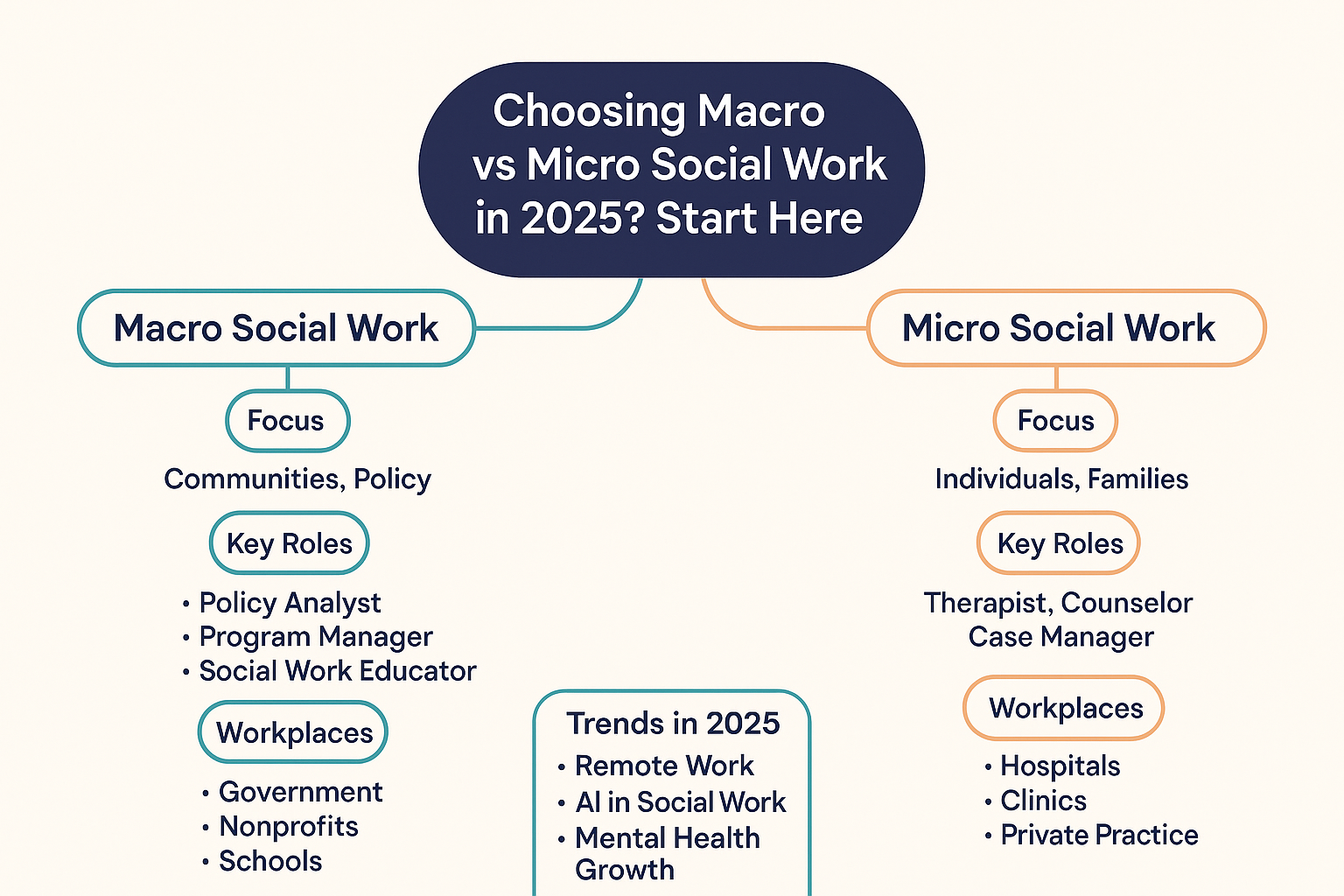
Are you thinking about a career in social work and wondering whether macro social work or micro social work is right for you? This guide will help you understand the difference between macro and micro social work, highlight current trends, and support you in making the best decision for your future in social work careers.
What Is Social Work?
Social work is all about helping people. But there are many ways to help! Some social workers focus on helping individuals with their personal problems, while others focus on making big changes in communities, laws, and organizations.
Let’s explore these two main paths: micro social work and macro social work.
What Are the Main Types of Social Work?
Social work is a diverse field. Based on your interests and skills, you can work in several social work practice areas:
- Micro Practice: Focuses on micro-level interventions like helping individuals and families through counseling, therapy, and direct support.
- Macro Practice: Involves macro social work careers that influence large groups or systems, such as developing programs, managing agencies, or engaging in public policy and legislation.
Read it: Top Jobs After MSW, MSSW, or MSSA: Find Your Best Career Path
Macro vs Micro Social Work
| Aspect | Macro Social Work | Micro Social Work |
| Focus | Systems, communities, policy | Individuals, families, and personal support |
| Key Roles | Policy Analyst, Program Director, Educator | Therapist, Counselor, Case Manager |
| Work Environment | Government, NGOs, Schools, Public Health | Hospitals, Clinics, Private Practices |
| Licensing Required | Typically no licensing required | LCSW or equivalent licensing required |
| Skills Needed | Leadership, Advocacy, Planning | Empathy, Clinical Assessment, Counseling |
| Average Salary (US) | $50,000 – $75,000 | $60,000 – $85,000 |
| Growth in 2025 | Growth in tech-based and public policy roles | Growth in mental health and therapy sectors |
What Is Micro Social Work?
Micro social work focuses on working closely with individuals or small groups. You help people deal with their emotions, relationships, and challenges. Some examples of micro-level interventions include:
- Counseling people who struggle with mental health issues
- Helping families or individuals through tough situations
- Offering advice and support to those dealing with addiction or trauma
Micro social workers are often seen in places like schools, hospitals, and mental health centers. If you enjoy one-on-one interactions and making a personal impact, micro social work might be the right fit for you!
Ready to see where your learning can come to life? Check out Social Work Field Placement Examples to explore real-world settings for both macro and micro practice.
What Is Macro Social Work?
Macro social work is different. Instead of focusing on individual cases, macro social workers work on community-wide issues. They aim to improve systems, policies, and laws to help many people at once. Some common macro social work careers include:
- Creating programs for communities
- Working with local governments to improve policies
- Advocating for social change at the national level
If you enjoy working behind the scenes, making policies, or advocating for changes that affect large groups of people, macro social work could be a perfect fit for you.
How to Become a Social Worker? Step-by-Step Guide 2025
Clinical vs Macro Social Work: What’s the Difference?
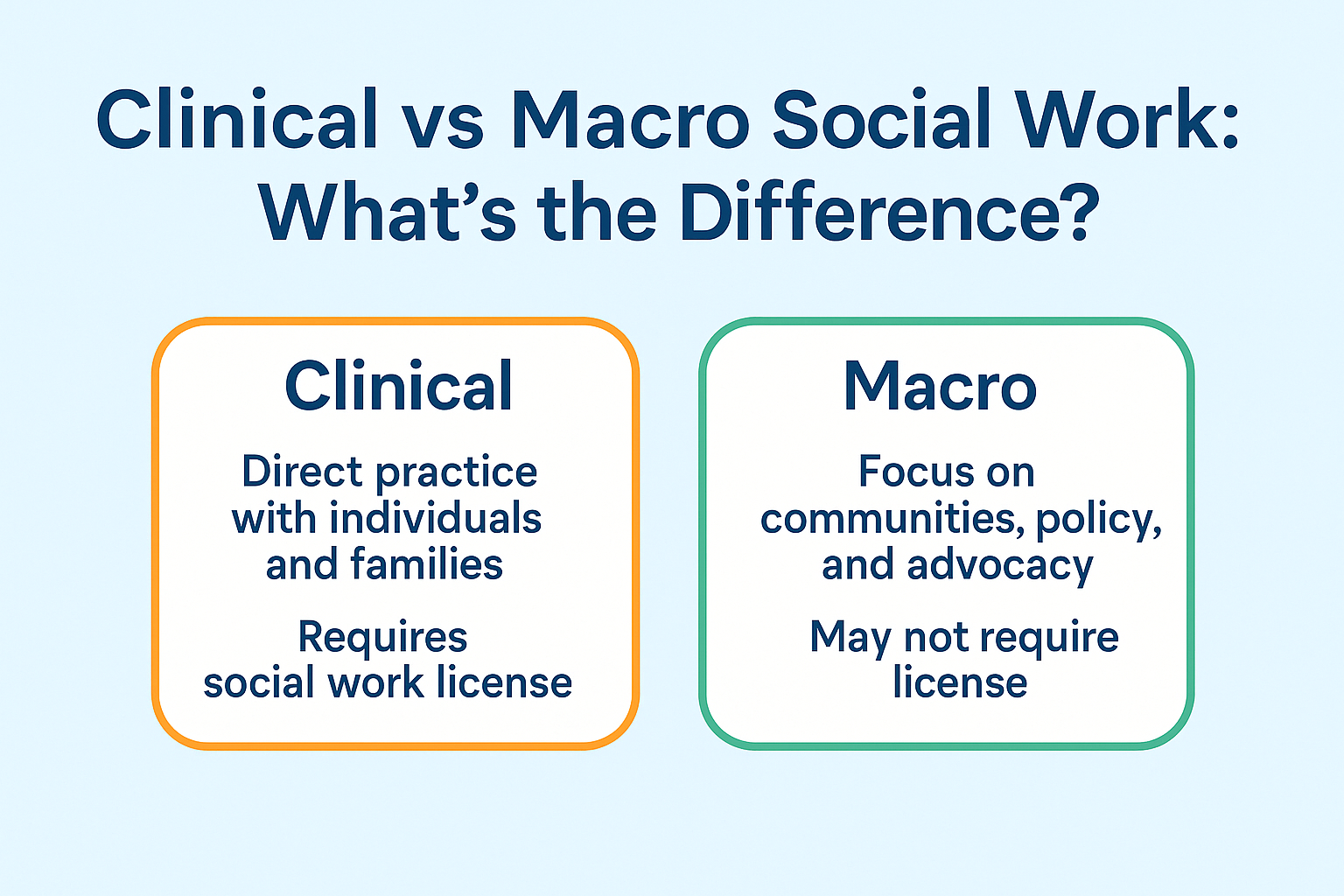
- Clinical Social Worker roles typically focus on mental health services and require licensure, such as becoming an LCSW (Licensed Clinical Social Worker).
- Macro Social Work deals with community-level efforts like policy and advocacy in social work, program development, or leading social change initiatives.
Both require an MSW (Master of Social Work) but may lead to different social work roles and responsibilities.
Key 2025 Trends in Social Work
- Macro social work trends 2025 point to a rise in digital advocacy in social work and AI in social work practice.
- Remote social work opportunities are growing, especially in community outreach and case management roles.
- There’s a focus on community-based mental health support as part of public health and social work.
- Veterans and Older Adults: Social work roles focusing on elderly care and supporting veterans are expanding as the population ages.
“Getting ready for your field placement? Check out our full guide on How to Crack MSW Internships in 2025 and set yourself up for success in either macro or micro social work roles.”
Deciding Based on Your Interests: Individual vs Community-Focused Social Work
Ask yourself:
- Do I want to work directly with individuals and families? (Micro)
- Am I more excited about shaping systems, policies, or agencies? (Macro)
Your answer will help determine your fit in this field and clarify your social work career choices.
Training and Education: What to Know
Most MSW jobs require choosing from various MSW program concentrations. These include:
- Clinical Social Work
- Policy and Administration
- Community Outreach Programs
- Social Justice Work
Your Top 5 MSW specialization will guide your career path and eligibility for roles like organizational social work or grassroots social work.
Real-World Roles: Examples of Each Path
Micro Social Work Examples:
- Therapist or Clinical Social Worker
- School Counselor
- Mental Health Advocate
MSW Clinical or Non-Clinical? Find Your Best Career Fit
Macro Social Work Examples:
- Community Organizer
- Policy Analyst
- Nonprofit Administrator
Each contributes to Human Services, just in different ways.
What’s the Job Outlook in 2025?
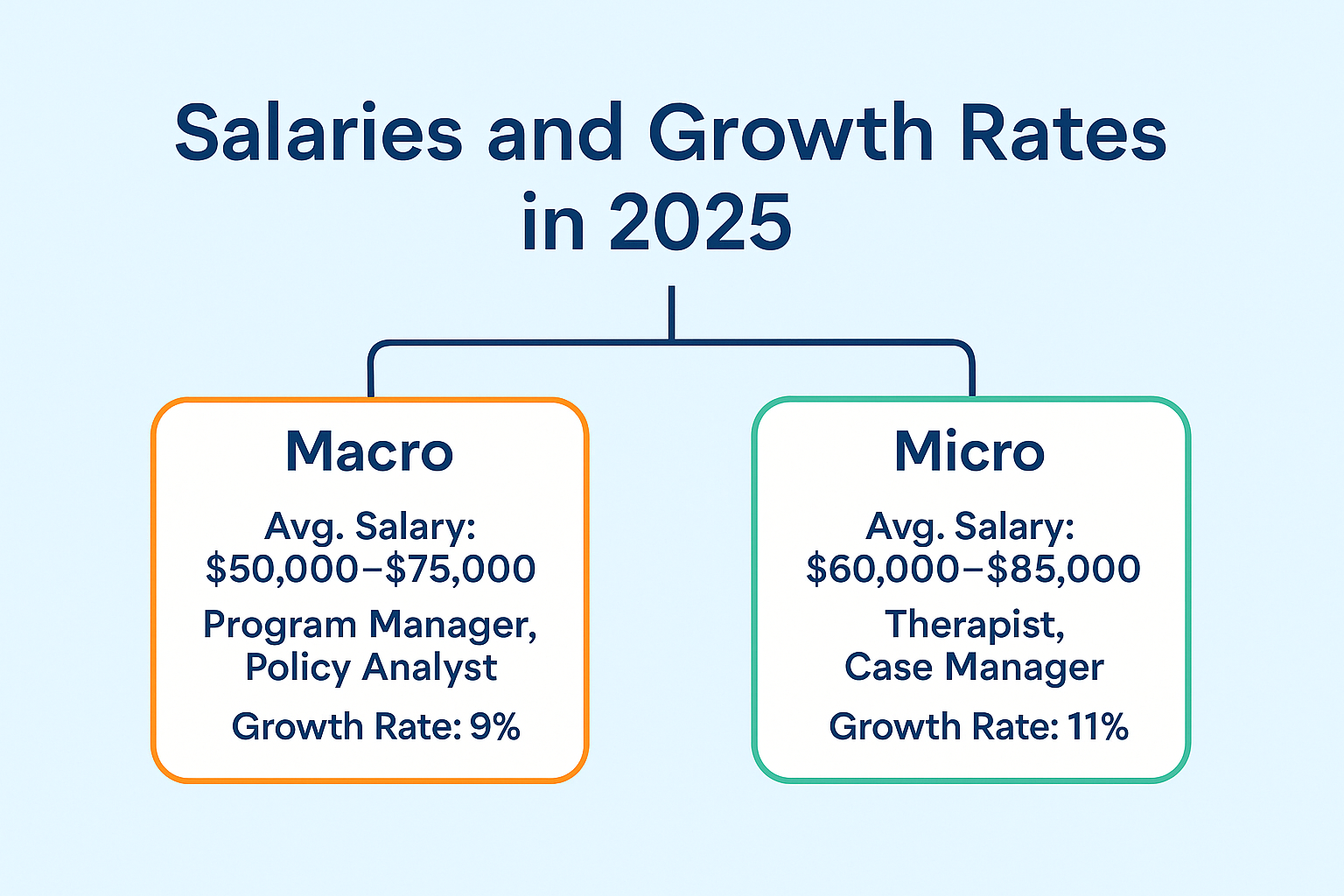
- MSW jobs in 2025 are expected to grow, especially in social work policy changes 2025 and fastest growing social work careers.
- Fields like macro social work jobs in 2025 will expand in public health, education, and housing.
If you’re asking which MSW path is right for me, think about your long-term goals.
If you’re torn between big-picture policy work or direct client service, dual degrees could help. Discover the pros and cons of MSW/MPH vs. MSW/JD to see which matches your goals.”
Quick Tip: How to Decide Between Macro and Micro Social Work
If you love helping people directly and making a difference one person at a time, micro social work is a great option for you. If you want to change systems, create programs, or advocate for laws that help many people, macro social work is a better fit.
Your career track depends on the degree you choose. Learn more about MSW vs MSSW vs MSSA Which option is Best for To Become social worker
Final Thoughts: How to Choose a Social Work Specialty
Whether you prefer individual vs community-focused social work, both paths offer rewarding opportunities. With so many social work career growth outlook 2025 options, now is a great time to commit.
Stay connected with professional bodies like NASW (National Association of Social Workers) and continue building relevant experience.
No matter your path—macro or micro—you’re stepping into a future of positive change!

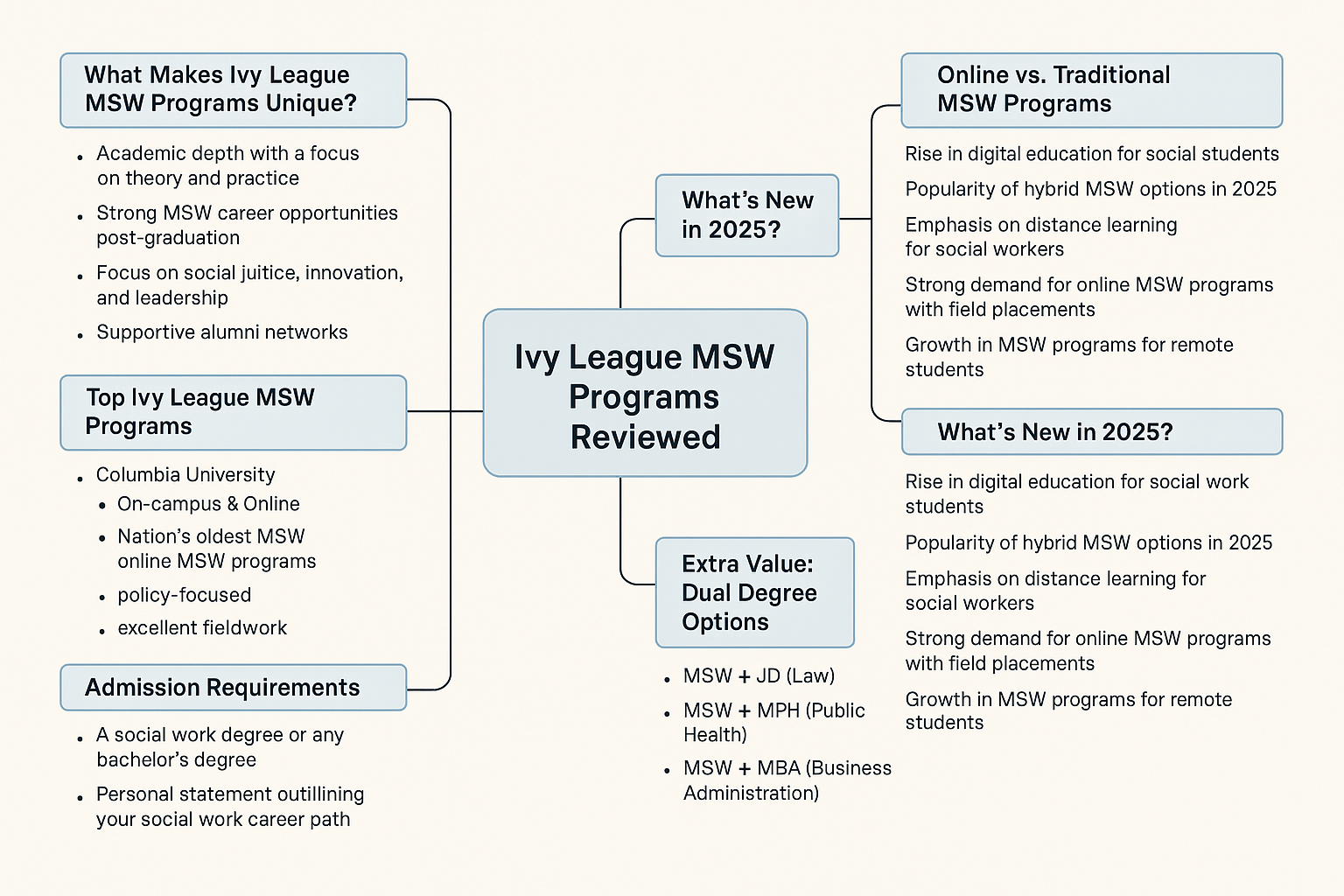

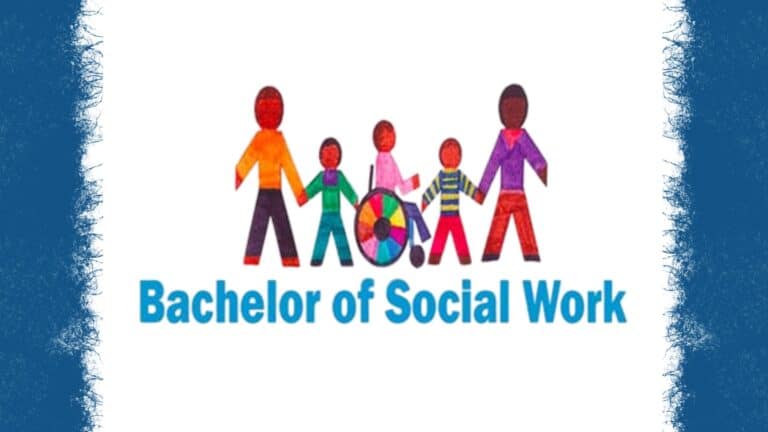
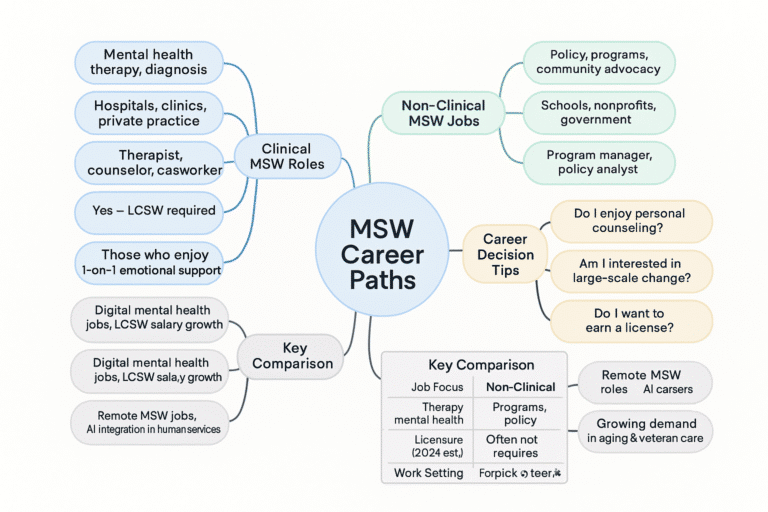
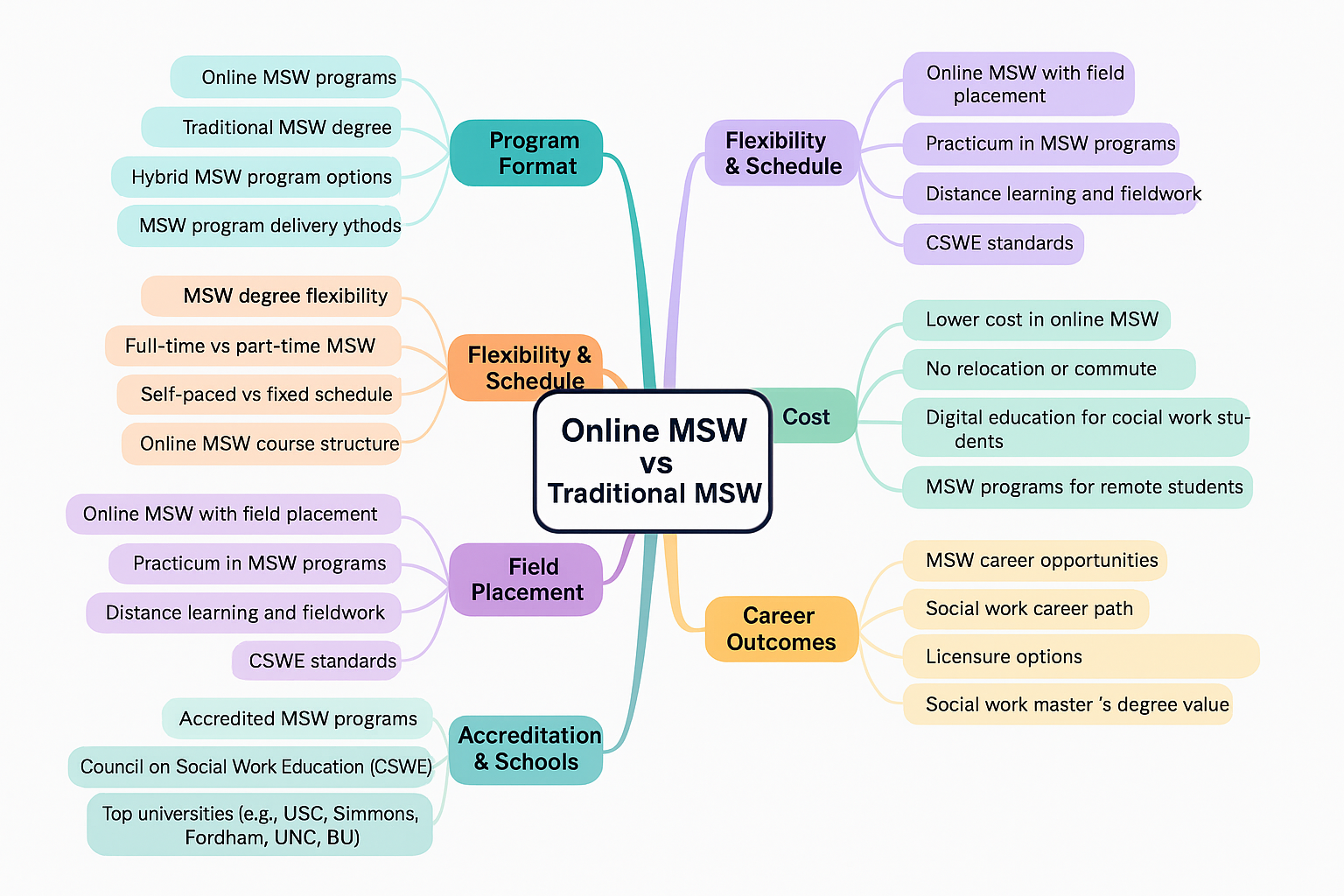

One Comment